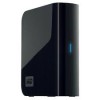An external hard drive is a handy gadget that has become very popular nowadays because they can store huge amounts of personal and business files. However, even though it delivers high speed transfers and reliability, it is always good to have a back-up plan in case of unexpected data loss. Data loss usually occurs as a result of two common factors: a physical fault with the hard disk itself, or a software related problem.
It’s no surprise that due to the complexity of modern hard drives, something could go wrong and cause data loss. In fact, this is the most common factor that leads to loss of data in external hard disks. Depending on the type and nature of failure, you can follow some simple steps to recover the data yourself without involving a professional.
A software related problem is the easiest to resolve. In this case, you may have lost your data when you accidentally, permanently deleted an important file from the hard drive or formatted the wrong drive by mistake. When this happens, the first step to take is to remember not to work with the drive in query anymore.
The more the drive stays connected to a working system, the more you limit the chances of ever recovering your data. This is because the operating system constantly reads and writes on the drive, perceiving the deleted data as free space, hence overwriting the area.
Here is an outline of steps that you should take if you manually deleted data from your system and need to recover it:
How to recover your data using software
1. Shut down the machine that your external hard drive is connected to. This renders the drive safe. Now you can clone the hard drive and try the recovery from the clone. You can use clonezilla, a freeware program, to do this.
2. Scan the clone with a number of different data recovery programs. Recuva and Easeus are available for free and do a pretty good job. Other recovery software are available, but some come with a price. Some of the free versions deliver speed and reliability.
You can also search online to find people with similar problems, to help you decide your course of action. If the drive is completely dead, making unusual noises or behaving in a weird manner, it is recommended that you hand it over to a data recovery professional. Any attempts of data recovery by non-professionals are considered risky at this stage.

